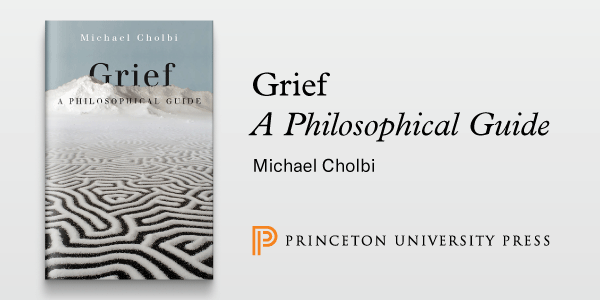Logic and the Law
“‘And’ may be read ‘or,’ and ‘or’ may be read ‘and’ if the sense requires it.”

So says paragraph (f) of Ohio Revised Code Section 1.02, which provides definitions for terms used in the rest of the Ohio legal code. The line was brought to my attention by Andrew Mills (Otterbein University).
“Or” read as “and”? No problem. That’s the inclusive “or.”
“And” read as “or”? Huh? Professor Mills asked some lawyer friends about it and reports:
Professor Mills also draws our attention to Section 926.01, paragraph V of the code, which notes, “Notwithstanding section 1.02 of the Revised Code, ‘and’ shall not be read ‘or’ and ‘or’ shall not be read ‘and.'”
If you’re interested in a closer look at “and”, “or,” and the law, here’s one.
And if you’re aware of other interesting items at the intersection of law and logic, let us know about them.



In Kenya ‘and’ cannot mean ‘or’. Neither can ‘or’ mean ‘and’.
I don’t really mind the law people having some sort of “disjunctive and”, but…
1.02: “‘And’ may be read ‘or,’ and ‘or’ may be read ‘and’ if the sense requires it.”
926.01: “Notwithstanding section 1.02 of the Revised Code, ‘and’ shall not be read ‘or’ and ‘or’ shall not be read ‘and.’”
This straightforward contradiction? How can anyone tolerate this?
The second cite is a more specific statute, namely:Agricultural commodity handler definitions. It’s saying that the general interpretive rule does not apply to that chapter of the code. Likely because that section was written more carefully by people who actually knew what they were talking about.
Ah, this is helpful, thanks!
“‘And’ may be read ‘or,’ and ‘or’ may be read ‘and’ if the sense requires it.”
^Sure, this makes total sense, as long as the bolded and is read as or.
Not sure whether it’s logic, but there’s all sorts of interesting cases about, e.g., whether a tomato is a fruit or a vegetable (for taxation purposes). Botanically, a tomato’s a fruit, but it’s treated like a vegetable. See Nix v. Hedden, 149 U.S. 304. Similar cases as to whether a G.I. Joe action figure is a doll.
Scalia and Garner’s, *Reading the Law* is awesome to read more about this stuff. Other “logic” sort of bits include doctrines like noscitur a sociis (i.e., unclear words find their meaning from other nearby terms) or ejusdem generis (i.e., vague terms are clarified by looking at their exemplars). Say a school had a sign: “No weapons allowed (e.g., handguns, machine guns, assault rifles)”, and a kid shows up with a knife. Did he violate the rule–the parenthetical “narrows” the application of ‘weapon’ or no? Etc.
Thanks for posting this, Justin. Here’s an article I share with students when we get to Propositional Logic: https://slate.com/news-and-politics/2021/04/gorsuch-libertarian-textualist-immigrant-rights.html
Also, there’s a burgeoning discussion of this oddity at the Philosophy Teachers Teach the Darndest Things Facebook group (which, full disclosure, I moderate). I was also wondering if this sort of clause is unique to Ohio or if it’s a standard clause in other states, too. I could investigate that pretty easily, of course, but I have not.
My colleague Curtis Franks has just about commented his way into a guest speaker invitation to myPhilosophy of Law class this semester.
Fritz, I thought you had me down for “The Bad Man Theory of Law: Applications.”
“The life of the law has not been logic: it has been experience.”
https://www.britannica.com/biography/Oliver-Wendell-Holmes-Jr/The-Common-Law
(Sorry, couldn’t resist.)
Oliver Wendell Holmes, the O.G. legal realist: the law is whatever the courts say it is.
Hard to disagree with that, when you see “how the sausage is made”, esp. tortured legal interpretations and decisions…
According to no less an authority than Boole, ‘The words “and” “or” are analogous with the + sign in algebra, and their laws are identical’. (The Laws of Thought, II, 2).
Nowadays, of course, Boole’s + sign (colloquially read as ‘and’) has become the OR of modern ‘Boolean’ logic, and (‘or’ ?) the V operator in propositional logic.
Furthermore, as Ryle has pointed out, sometimes ‘and’ can even mean ‘so’, as in ‘She took arsenic and fell ill’.
“The menu includes meat and vegan options.” Clearly this is ambiguous between “The menu includes options that are both meat and vegan” and “The menu includes both meat and vegetarian options”. Of course, the latter is likely to be the intended meaning. Similarly, “Cruel and unusual punishments shall not be inflicted” is ambiguous between “Punishments that are both cruel and unusual shall not be inflicted” (the standard interpretation) and “Both cruel and unusual punishments shall not be inflicted”, which is the same as “No cruel or unusual punishments shall be inflicted”. I think the latter is the correct interpretation for understanding the eighth amendment. The Founders didn’t think that cruel punishments needed only to be popular enough to escape being prohibited by the eighth amendment. And they thought that unusual punishments in the sense of punishments that do not follow legal precedent or, more broadly, do not follow the law were also prohibited by the eighth amendment.
There’s a big literature in the philosophy of language (and in linguistics) about when and why “or” seems to behave like “and” and vice versa. This phenomenon often goes under the name “free choice permission.” I believe that label originate in the title of Hans Kamp’s 1973/74 paper in the Proceedings of the Aristotelian Society. Most of the time when this pops up there are modals involved, as in the modal auxiliary, “may,” in the example.
Notably, in relation to that example, is the view, defended by Thomas Ede Zimmerman in “Free Choice Disjunction and Epistemic Possibility” (2000, Natural Language Semantics) and then refined by Bart Geurts in “Entertaining Alternatives: Disjunctions as Modals” (2005, same journal) that a disjunction “P or Q” is semantically equivalent to a conjunction of modals, “⬦P and ⬦Q”. It seems to me that the most obvious reading of “Acme may sell assets and make capital expenditures” has this logical form (we have to treat a second “may” as having been elided if we read the sentence that way). This might explain why the sentence sounds like a disjunction.
(Of course, not everyone agrees with Zimmermann and Geurts about the semantic equivalence that they posit. But even those who disagree tend to think that there is at least some pragmatic explanation—possibly a complex kind of scalar implicature—for why disjunctions tend to have the same import as the corresponding conjunctions of modals.)
I was hoping someone would bring up free choice permission. This whole legal interpretation business is pretty good evidence that the literature on epistemic modals is not just some niche issue that only linguists and linguistically inclined philosophers have any reason to care about. (A dispute over how ‘and’ behaves with modal operators actually took place in the second impeachment proceedings of Donald Trump.)